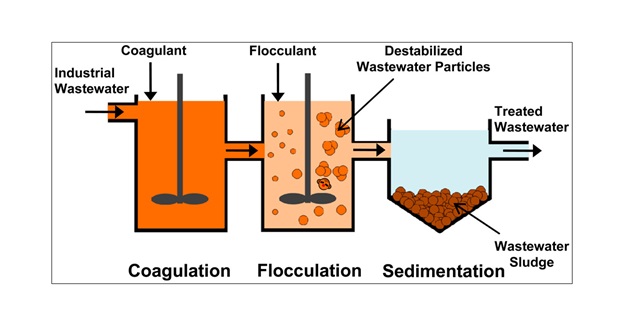
This paper provides an overview of heavy metal removal technologies for wastewater treatment, with a focus on adsorption, chemical oxidation, ion exchange, and various coagulation processes. The discussion revolves around wastewater characterization as an essential first step in creating efficient treatment systems. The study examines the uses of different treatment technologies, emphasizing both their benefits and drawbacks. Although flocculation is a rapid and economical procedure, it produces waste and needs further filtration and sedimentation. In addition, natural coagulants are found to be more environmentally friendly than synthetic ones, their effects on water quality may make disinfectants necessary. Despite their low toxicity, stability, and environmental advantages, hybrid coagulants have certain drawbacks that are related to operational variables. Despite its broad applicability and low cost, adsorption faces challenges with regeneration and sludge creation. Although it is acknowledged to have a high metal recovery rate, ion exchange is expensive and requires special maintenance. Chemical oxidation techniques, in particular advanced oxidation processes (AOPs), are useful for eliminating heavy metals and breaking down organic materials. The limitations and difficulties of each approach are discussed in the abstract's conclusion, which highlights the necessity of future study aimed at enhancing treatment efficacy for extremely low quantities of heavy metals. To allay worries about energy usage, the integration of electrochemical processes with renewable energy sources is recommended.
Total file downloads: 31